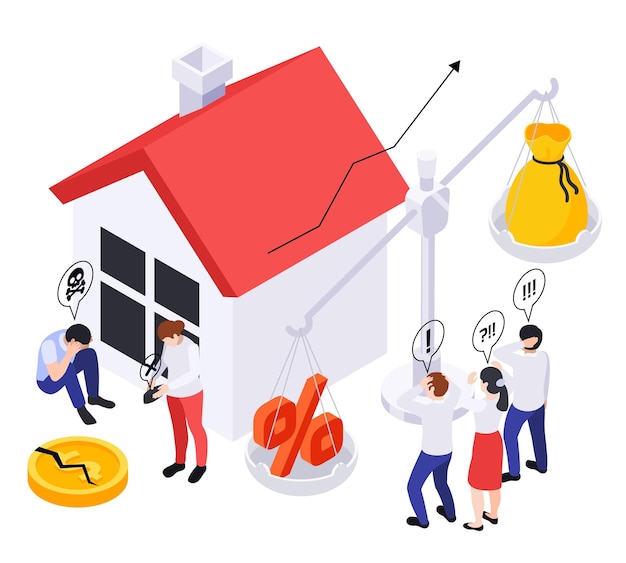In 2020 and 2021, there was a surge in mortgage refinancing due to record low rates. Borrowers with good credit could secure rates even lower than the average. However, there’s a potential pitfall in this process: it can take a long time, and that can cost you.
Let me illustrate this with a story. Imagine Elizabeth, Donald, and Joe, who survived a plane crash and ended up on a deserted island. After two weeks of surviving on coconuts, Donald spots land in the distance. They decide to swim towards it, but halfway there, Joe gets tired and decides to swim back to the island.
This is similar to what happened to me during my mortgage refinance. I was Joe. Here’s why: it was the most challenging refinance I’ve ever done.
I was two months into refinancing my mortgage with Citibank when I decided to cancel, even though we were just a week away from closing. I was trying to refinance a 5/1 ARM at 2.5% into a 10/1 ARM at 3% for a cost of $1,500. If I didn’t refinance before August 1, my rate would reset to 4.5%. I canceled in late May.
The main reason for my cancellation was Citibank’s broken promises. They had promised me a rate of 2.875% if I locked with them at 3%, but they never delivered. So, I decided to look elsewhere.
I found a better deal with Wells Fargo, which offered me a 7/1 ARM at 2.875% with no refinance fees and a $2,000 credit. This was tempting, even though it meant transferring $750,000 in assets to the bank.
I went back to Citibank and asked them to match Wells Fargo’s offer. I was even willing to accept 2.875% and pay $1,500 in refinance fees with Citibank instead of receiving 2.875% and a $2,000 credit from Wells Fargo. But Citibank didn’t agree, so I canceled with them.
Starting over with Wells Fargo wasn’t too difficult because I already had all the necessary documents from my refinance process with Citibank. However, it was a gamble because Wells Fargo was a new relationship.
The Wells Fargo mortgage representative assured me that two months would be enough time to complete the refinance. I believed him, but he was wrong.
Now, I’m in my third month of refinancing. The process has taken so long that I had to resend several documents because they had expired. The loan officer explained that the delay was due to a backlog of applications because mortgage rates have continued to drop.
The only good thing about this delay is that I’ve been able to negotiate a lower rate. I’m now at 2.75% with a $4,000 credit.
However, each day past August 1 that my mortgage refinance doesn’t close is costing me an extra $33.56 in interest. Over a 30-day period, that’s an extra $1,005 in mortgage interest.
I took a risk with a new lender who didn’t deliver. At least I don’t have to pay for the rate extension.
Refinancing your mortgage will likely take longer than you think. Due to COVID-19, underwriting departments are backed up, and lenders are super busy.
If you’re refinancing today, expect it to take 3 – 4 months. This is particularly important for Adjustable Rate Mortgage (ARM) holders who are facing an expiration of their fixed term.
For those with 30-year fixed mortgages, the length of the refinance process isn’t as crucial. However, to save money, you should still push for a quicker close.
Once my refinance is completed, I plan to never refinance a mortgage again. It’s too difficult, and mortgage rates are higher due to inflation.
If you’re planning on refinancing your mortgage today, I wish you better luck than I’ve had. Don’t be stubborn and "pull a Joe" if you value your time and sanity.
Real estate is my favorite way to achieve financial freedom. It’s a tangible asset that’s less volatile, provides utility, and generates income. The combination of rising rents and rising real estate prices builds tremendous wealth over the long term.
I’ve personally invested $810,000 in real estate crowdfunding across 18 projects. My real estate investments account for roughly 50% of my current passive income of ~$300,000.
Don’t let a mortgage refinancing miscalculation derail your real estate purchase plans. Investing in private real estate is less stressful and way more passive.
